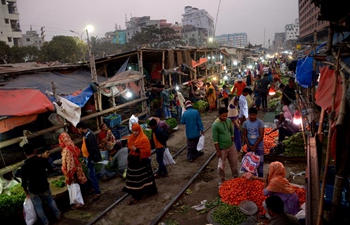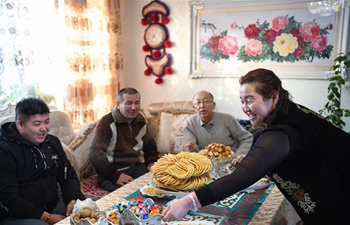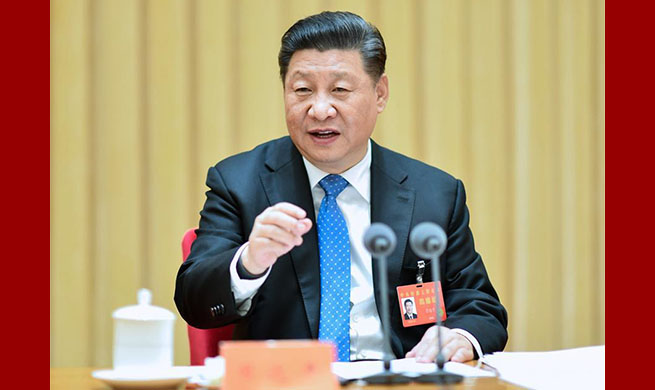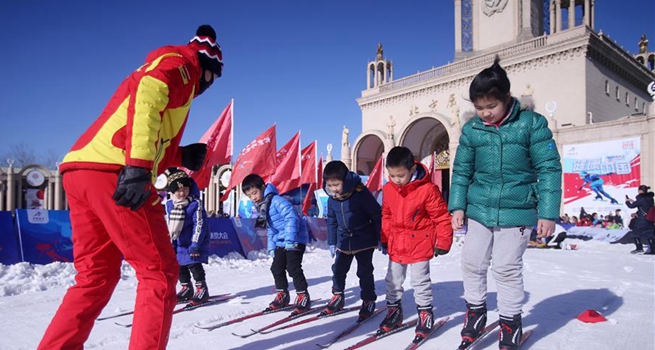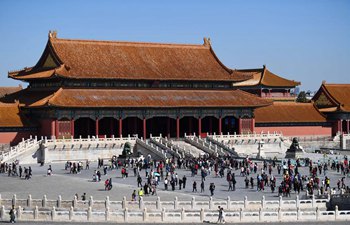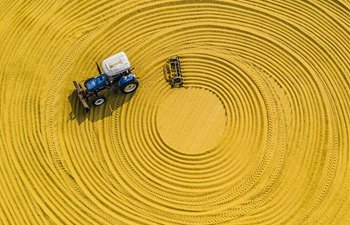XIAMEN, Dec. 24 (Xinhua) -- The IAAF gold label road race Xiamen Marathon, to see 35,000 runners in 2019, is implementing a plan that will reduce plastic waste by 50 percent, the organizing committee announced on Monday.
It is the first international marathon around the world to officially join forces with the United Nations Environment Clean Seas campaign, a global compact for combating marine litter with commitments from 51 countries and regions and a growing number of business and organizations, covering 62 percent of the world's coastlines.
The list of measures against pollution includes replacing the nearly one million single-use plastic cups with biodegradable cups made from maize straw. Single-use plastic bottles and disposable cups will officially be things of the past for the runners in the Xiamen Marathon.
To reduce the plastic pollution generated each year by the event, the organizers have adopted an impressive list of measures and eco-alternatives that will reduce plastic waste by 50 percent.
Xiamen race's organization will also be fully paper-free, with all announcements and documents going digital and saving some 10,000kg paper and 200kg solid dyes along the course of the event.
The marathon organizers are taking creative approaches to go single-use-plastic-free, looking beyond the elimination of water bottles to make an impact. They will fashion their promotional material from biodegradable material and reduce single-use plastic in any pack. The discarded placards will also be recycled.
Wu Mingxian, director of Xiamen Marathon organizing committee, told Xinhua that the Xiamen Marathon is an energetic race promoting a healthy lifestyle and has always been advocating the importance to launch green initiatives.
"Joining the UN Environment Clean Seas campaign is a great opportunity for us to upgrade the marathon to a new level by fulfilling our commitment to environment protection and sustainable development. It is just the beginning of a grand adventure," said Wu.
UN Environment launched the Clean Seas campaign in February 2017, aiming to connect individuals, civil society groups, industry and governments to reduce marine litter and the harm it causes by transforming habits, practices, standards and policies around the globe.




